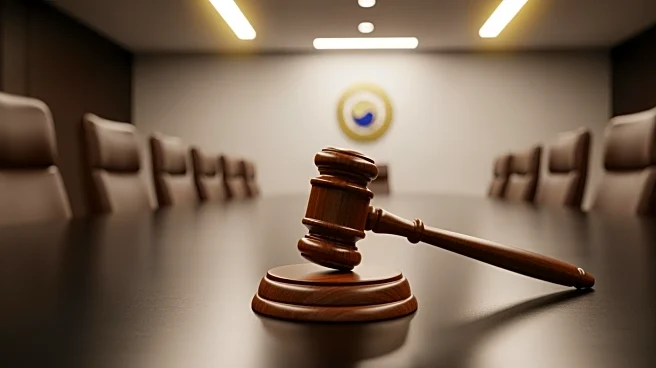Rapid Read • 7 min read
The Executive Office of the President (EOP) was established in 1939 by President Franklin D. Roosevelt to provide the President with necessary support for effective governance. The EOP encompasses various entities such as the Office of Management and Budget, the Office of the United States Trade Representative, and the White House Military Office. These offices are responsible for a range of tasks, including communicating the President's message, promoting trade interests, and maintaining logistical support for the President. The EOP also includes the President's immediate staff and several advisory councils, such as the National Security Council, which advises on foreign policy and national security.
AD
The EOP plays a crucial role in the administration of the U.S. government by supporting the President in executing laws and managing federal agencies. It influences public policy and international diplomacy, impacting sectors like trade, defense, and environmental policy. The EOP's structure allows the President to appoint key advisors and heads of federal commissions, shaping the direction of national policy. This centralized support system is vital for the President to navigate complex governmental operations and implement their agenda effectively.
The EOP will continue to evolve as new administrations bring changes in priorities and structure. Future developments may include adjustments in advisory roles or the creation of new offices to address emerging issues such as cybersecurity or climate change. The ongoing adaptation of the EOP ensures that it remains responsive to the dynamic needs of the presidency and the nation.
The EOP's influence extends beyond immediate policy implementation, affecting long-term strategic planning and international relations. Its advisory role in areas like national security and economic policy can lead to significant shifts in U.S. global positioning and domestic priorities.
AD
More Stories You Might Enjoy










